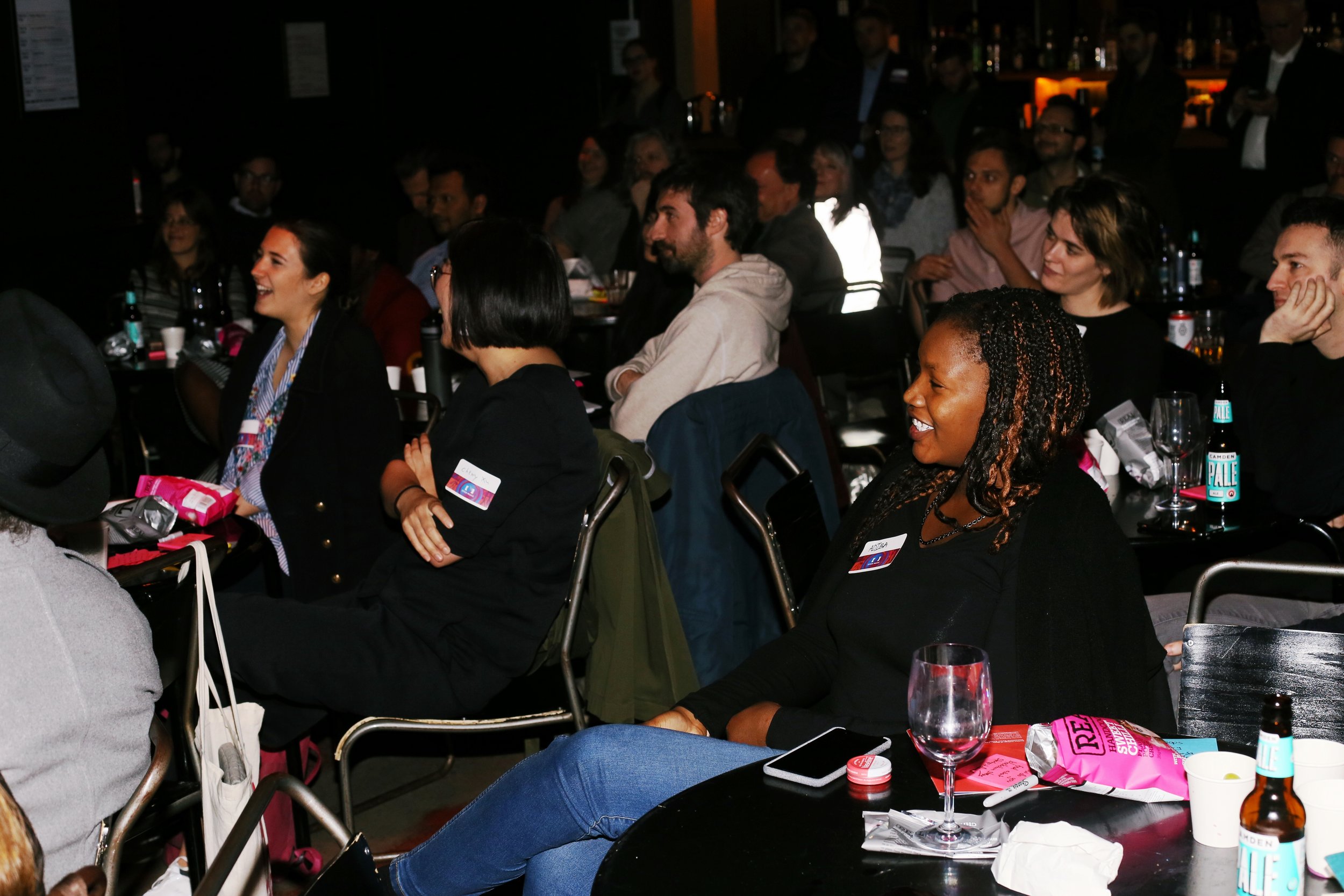Report from London: Red Bull Hack and Ace Hotel Artist Meetup
Local artists, Berklee alumni and Open Music members come together at the Ace Hotel Shoreditch London artist event
It’s said that if you’re not embarrassed of the first version of your website, it means you took too long to launch. While no one was embarrassed by the outcome of the first Open Music/Red Bull Hack, it certainly did fit the now-overused definition of an MVP (minimum viable product). At that first hack in Salzburg in March, a small group of dedicated coders from Blokur and Tribe, amongst others, utilized the Open Music API as a template to build out a Blockchain-based product that facilitated the licensing and tracking of videos with Red Bull Media House-controlled music.
Fortunately, Red Bull Media House was more than happy to host a stage two at their London offices, and what a stage two it was. Over several days that - if any of us had been able to step away from coding/convening and see the sun - felt a little like spring, the coders/rock stars reconvened to finish what they’d started, with the added pressure of a public-facing deadline to share what they’d done with the Open Music community.
Open Music is a coordinating agent. This ethos expands out beyond our commitment to the coordination and interoperability of tech via open source APIs, and extends to the coordination of ideas and relationships.To this end, with the help of Ace Hotel, we designed this particular event to combine these various coordinating aspects, convening OMI members with Berklee alumni, local London artists and music industry entrepreneurs.
Panelists during the Open Music Ace Hotel Shoreditch artists event (photo credit: Rob Jones / Ace Hotel Shoreditch)
Open Music’s April event with Red Bull and Ace Hotel entailed not only the aforementioned hack, which built upon the work started in Salzburg and greatly progressed the development of the Red Bull product, but also a kick-off talk from Open Music founder, Panos Panay, in which he continued to emphasize not only the rationale and vision for OMI, but its ongoing progress convening innovators at the edges of the music and tech industries. A panel followed, with Open Music’s Nicole d’Avis, JAAK’s Becky Brook, Carly Sheridan, a writer in the creative blockchain space, Auddly’s Helienne Lindvall, and Blokur founder Phil Barry discussing what might be possible for artists and creators if the information asymmetry and intermediaries were to be leveled through tech-based solutions.
Most importantly, in attendance at the event were a hundred or so attendees who were able to ask questions and contribute ideas to the mix. After listening to panelists discuss the hypothetical possibilities of tracking creator metadata, the audience was eager to dive into a concrete demo. The Red Bull product was presented to the attendees by the coders who built it: Lukas Oberbichler from Tribe, and Mike Christensen and Luca Zambarda from Blokur, amongst others from Red Bull, BMAT, Paperchain, Rights Tracker, and Repertoire.
The spec of the product had not changed from the original Salzburg hack. The product’s goal was to greatly increase the transparency, precision, and speed to which artists who both make the music and those who create the videos that utilize the music are accounted and credited.
Mike Christensen, Blokur and Lukas Oberbichler, Tribe, demo the Red Bull prototype
At core, this goal, is, of course, the goal of OMI writ large. We believe deeply that it is these ongoing inefficiencies and siloed databases that are not only reducing the ability for artists to be quickly and fairly compensated for their works, but keeping the entire ecosystem closed off from innovative new entrepreneurial ventures, and from the use of music in adjacent and orthogonal industries that would love to utilize music’s potency by integrating it into their products.
To this end, round two of coding led to the development of an open contract standard which rights owners can use as a template in order to deploy their own contract instance, which records the issue of licenses for specific recordings.
The product included ways for licenses and rights holder data to be recorded on a blockchain, including:
- Registering new licensable recordings
- Recording to which Google/YouTube account holders a license has been issued
- Recording the YouTube video with which the license has been used
- Supporting multiple license types
- Capturing license expiry date
- Revoking issued licenses
- Reading all of the above information in different ways; e.g. acquire licenses on a specific video (which YouTube would use) or issued to a specific user
- Associating an OMI API endpoint URL with the contract so that metadata can be fetched for the recordings
More information on the full set of contract functionality is described here. All of the above features were then built into an model webapp user interface stack element, which sits on top, and interacts with this contract in the background. You can view the product in its current form via this video.
This Red Bull product so perfectly addressed the above issues and opportunities dominantly because Red Bull Media House themselves are committed to keeping this type of technological product — one that provides not only Red Bull with benefits, but also those with whom Red Bull shares values: creators — open and available to be built upon. It is this mindset that also drives Open Music. These events both show and tell the power and importance of Open Music’s role as coordinating agent, and its commitment to expanding the music industry ecosystem via interoperability.
As with the last event, a special note of thanks must go to those without whom this event would not have been nearly the success it was, most importantly Ace Hotel for co-hosting and sponsoring the event, Red Bull for sponsoring and hosting the hack, and the many hackers and panelists who participated.



